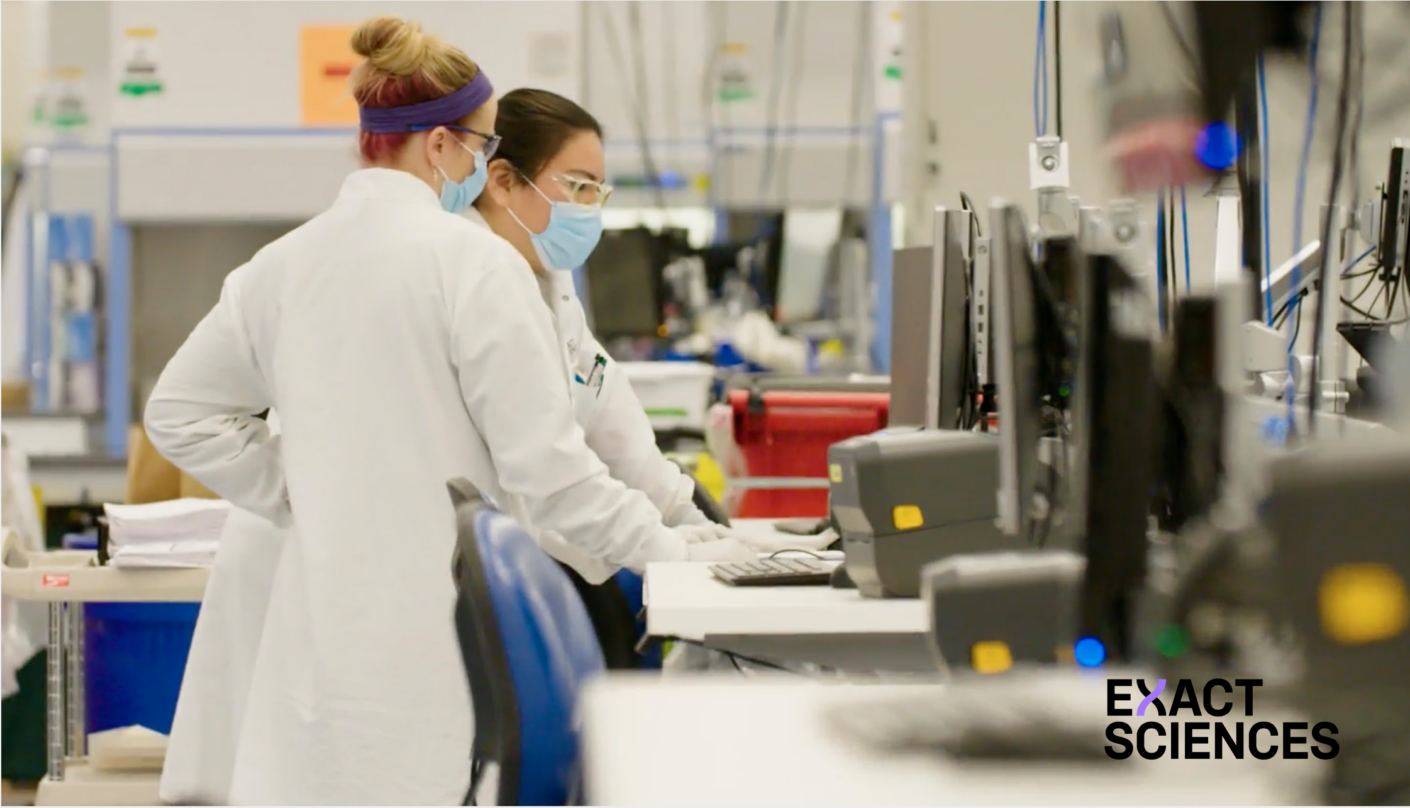When Exact Sciences CEO Kevin Conroy started his job, his first stop was to Mayo Clinic for a talk with one of his biggest inspirations, the late researcher and gastroenterologist Dr. Dave Ahlquist. Conroy believed Mayo Clinic and Exact Sciences could work together to create a non-invasive screening test for colon cancer that used DNA found in stool.
Colon cancer is the number two leading cause of cancer deaths in the U.S, but with screening, it can be caught in the early stages, when about 90 percent of patients survive five years or more. There are several tests health care providers recommend for colon cancer screening, including a colonoscopy. However, some patients don’t want a colonoscopy because it's invasive, it can require a full day off from work, and it's sometimes expensive.
So, Conroy and his team, along with the scientists at Exact Sciences, got to work to create a new kind of test — an at-home colon cancer test, which would become what we now know as Cologuard®. “Half of the six million-plus people who have used Cologuard have never been screened previously,” says Conroy. Cologuard detects 92 percent of colon cancers from one stool sample.
Since Cologuard was approved following a unanimous vote by the FDA Advisory panel back in 2014, the team at Exact Sciences has been rapidly expanding the scope of their research, developing new and innovative testing and screening techniques that will help detect multiple types of cancer earlier. To understand how they’re doing this, Conroy and some of the brilliant scientists who work at Exact Sciences gave Katie a peek behind the curtain at their lab in Madison, Wisconsin.
Behind the sleek, yet welcoming glass exteriors of its laboratory and corporate headquarters, scientists are hard at work developing new and innovative tests in the fight against cancer. One of their most recent developments is a blood test for liver cancer, which was developed under the guidance of scientist Marilyn Olson, vice president of pipeline product development. In the past, the standard of care for patients who are at high risk for liver cancer was to go in for imaging every six months. With this new test, these patients can now take a simple blood test to keep up with recommended surveillance. The test can detect 82 percent of early-stage cancer, which is a significantly higher detection rate than other blood-based tests. “The fact that we were able to develop an easy, blood-based test makes the surveillance of these high-risk individuals a lot easier,” Olson says.
While breakthroughs in screening for these individual cancers are life-changing, Exact Sciences is currently working on a multi-cancer early detection (MCED) test that may be a game-changer in the decades-long war on cancer. According to Conroy, this blood test is designed to detect dozens of different cancers, often at earlier stages and long before a patient begins to show any symptoms. An MCED test has the potential to shift the paradigm from late-stage diagnosis to earlier detection of some of the most lethal cancers, like pancreatic or ovarian cancer, that currently have no standard screening tests.
A groundbreaking study of the company’s MCED test has already impacted real lives. One participant, Rosemary, had no prior history or symptoms of cancer when she made the decision to enroll. Along with 10,000 other women in the study, Rosemary’s blood sample was screened using the MCED test which, for her, indicated the presence of cancer. Ultimately, she was diagnosed with early-stage ovarian cancer, received treatment, and is now back to living her life. “I feel very fortunate,” she says. Exact Sciences' mission is to ensure Rosemary’s early detection story will one day be common for many more cancer patients. Early detection holds the promise to improve outcomes and change the lives of so many.









